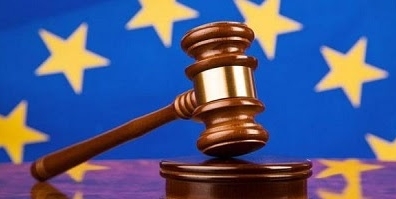
The new General Product Safety Regulation will come into force on 13 December 2024, replacing the previous General Product Safety Directive, and is a significant time point for many businesses selling non-food consumer goods in the EU and Northern Ireland. This change in regulations, like a bombshell in the European business sector, triggered a series of chain reactions, but also prompted businesses to actively change to adapt to the new rules.
From the perspective of the scope of the regulation, it extends its tentacles to the majority of non-food consumer goods sold in the EU and Northern Ireland. This means that whether it is common electronic products, household items, or all kinds of fashion clothing, toys, etc., as long as it is consumer-oriented and does not belong to the category of food goods, are included in the regulatory scope. Such extensive coverage demonstrates Europe's commitment to ensuring consumer safety and market stability. Previously, under the old directive framework, there may be some regulatory ambiguity or relatively loose places, and the implementation of the new regulations will plug these possible loopholes one by one, so that the entire business environment is more standardized and orderly.
For sellers, handling Odai has become an essential task. Eu-authorized representatives act as a bridge between sellers and EU regulators. When there are any issues related to safety regulations, Odai should be able to respond and deal with them in a timely manner on behalf of the seller. This requirement may seem to increase the operating costs and procedural complexity of sellers, but in the long run, it is actually helping sellers better integrate into the European market and avoid the risk of violations due to unfamiliar local regulations.
Ensuring the labelling and traceability of goods is also a focus of the new regulations. In terms of labeling, key information such as product ingredients, precautions for use, and safety warnings need to be clearly and accurately marked on the product, so that consumers can be at a glance when purchasing and fully understand the product characteristics and potential risks. Traceability is to quickly locate the source and direction of the problem product in the event of product quality problems or safety hazards, so as to facilitate timely recall and other measures to minimize the harm to consumers. This undoubtedly puts forward higher refined requirements for the seller's supply chain management, production record keeping and other links, and the previous extensive management model will be difficult to sustain in the face of new regulations.
Providing information about the person in charge of the EU is also a point that sellers must strictly implement. With a clear person in charge, the regulatory department can find the corresponding responsible subject when inspecting and dealing with relevant affairs, which enhances the effectiveness of the entire supervision. This requires the seller to arrange a special person or entrust a professional organization to play this role to ensure the accuracy and timely update of the information.
In the face of this change in regulations, the first thing businesses need to do is to deeply study and understand the specific provisions of the regulations. We should not just stay at the level of knowing that there is such a new regulation, but we should analyze it word by word and figure out the specific operation methods corresponding to each requirement. For example, labeling, the emphasis and format of different types of products may be different, and it needs to be accurately grasped.
At the same time, it is necessary to conduct a comprehensive review of its product supply chain. From raw material procurement, to production and processing, and then to the final packaging and transportation links, it is necessary to check whether there is a place that does not meet the new regulations. For those links that cannot meet the requirements of labeling and traceability, it is necessary to rectify and improve them as soon as possible, and invest funds to upgrade technology or optimize management if necessary.
Moreover, it is crucial to choose the right European institutions and the right EU leaders. It is important to examine Odai's professional competence, reputation for service and experience in responding to emergencies, etc., to ensure that it can play a role in critical moments. The responsible person of the EU should also have the corresponding knowledge and responsibility of laws and regulations, and can effectively perform their duties.
In short, the implementation of the European General Product Safety Regulation on December 13, 2024, although it has brought many challenges to businesses, as long as they actively respond to and comply with the operation, it will also help businesses to go more stable and further in the vast commercial market in Europe, and achieve their own sustainable development while protecting the rights and interests of consumers.

Recently, according to Al Jazeera, Israel has recently carried out a new round of air strikes on the Gaza Strip, killing about 100 Palestinians, including women and children.
Recently, according to Al Jazeera, Israel has recently carr…
On November 3rd local time, the Foreign Minister of Peru, U…
Recently, TSMC, the leading wafer foundry, stated that it w…
Amazon recently filed a complaint with the Oregon regulator…
In October 2025, the US credit market witnessed a surge of …
When the London gold spot price fell from a high of $4038.9…